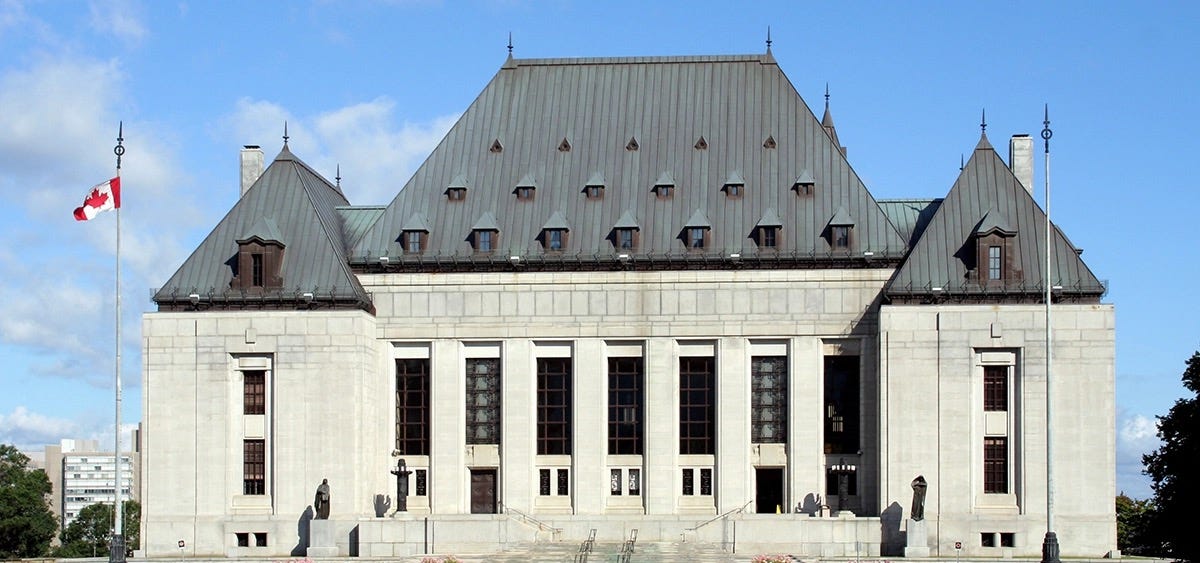How a Kelowna custodian, with the help of his lawyer Karen Scott, reshaped Canadian workplace human rights
In 1992, the Supreme Court of Canada delivered a unanimous decision in Central Okanagan School District No. 23 v. Renaud, restoring school custodian Larry “Steve” Renaud to his job and establishing a robust framework for the duty to accommodate employees’ religious beliefs and other protected needs. (decision) This ruling not only corrected Renaud’s dismissal but also placed a clear legal obligation on both employers and unions to cooperate in good-faith adjustments unless doing so would cause “undue hardship.”
Effective Advocacy
Renaud’s case might not have reached Canada’s highest court without the work of Karen R. Scott, a Langley-based lawyer with Gaynor, Smith & Scott. Representing Renaud from British Columbia through to the Supreme Court, Scott argued that the combined rigidity of the school board and the union had effectively forced her client to choose between his job and his faith. Scott’s submissions highlighted how the refusal to adjust a Friday-Saturday schedule had an indirect discriminatory effect, even if it appeared neutral on its face.
At the Supreme Court hearing, Scott pressed the Justices to adopt a standard that went beyond token adjustments, urging recognition that true equality sometimes requires flexibility in workplace rules. She underscored that neither collective agreements nor administrative inconvenience should override fundamental rights protected by human rights law.
While Ottawa-based counsel Henry S. Brown, Q.C. served as Scott’s agent before the Court, it was Scott who carried the responsibility of developing and presenting Renaud’s legal theory from the early grievance stage through to the landmark appeal. Her role placed a frontline B.C. lawyer at the heart of a case that has since defined Canadian employment accommodation law.
The Other Sides and the Interveners
Opposing Scott, the Board of School Trustees of School District No. 23 was represented by Robert E. Groves (Weddell, Horn & Company, Kelowna) with William T. Houston as Ottawa agent. The Canadian Union of Public Employees, Local 523, was represented by John Baigent with Robert E. Houston, Q.C. as agent.
The case also drew wide national attention, with interveners including the Ontario Human Rights Commission (represented by M. David Lepofsky and Janet E. Minor), the Seventh-day Adventist Church in Canada (through Karnik Doukmetzian and Gerald Chipeur), and the Canadian Labour Congress (represented by Jeffrey Sack, Q.C., and Steven Barrett). Each brought broader perspectives on religion, labor rights, and systemic discrimination.
The Court’s Decision
Justice Sopinka, writing for a unanimous Court, found that both the school board and the union had failed in their duty to accommodate Renaud. The Court confirmed that accommodation must be pursued unless it causes undue hardship, a higher standard than the “de minimis burden” test applied under U.S. law at the time. Neither collective agreements nor the prospect of union grievances could excuse non-compliance with human rights obligations.
As a result, Renaud was reinstated, and the duty to accommodate became a binding principle in Canadian workplace law, extending beyond religion to disability, family status, and other protected grounds.
Oral Arguments
The official record of the case, including counsel listings and judgment details, is available through the Supreme Court of Canada’s case file for Docket 21682: SCC Case Information: Central Okanagan School District No. 23 v. Renaud. The Court’s decision text can also be accessed at CanLII.
Although the Court does not provide archived oral audio from 1992, transcripts and argument records are preserved in the docket.
